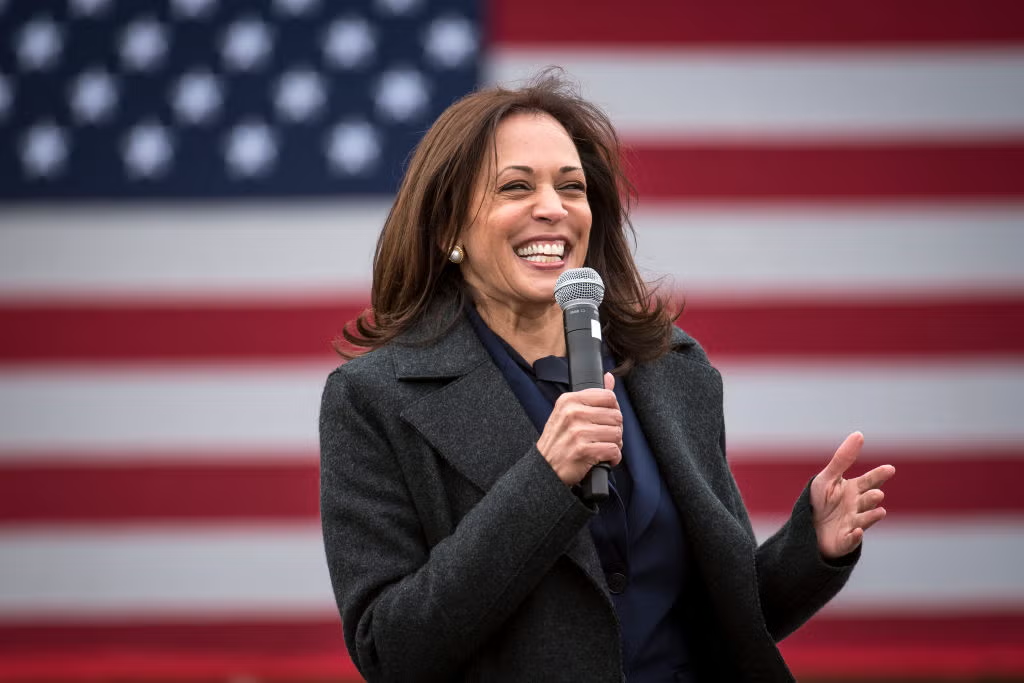Kamala Harris, the current Vice President of the United States, stands as a prominent figure in American politics, her potential candidacy for the presidency drawing significant attention and speculation. To understand her chances and the factors that may influence her bid for the highest office, we need to delve into her background, strengths, weaknesses, opportunities, and threats.
Kamala Harris was born in Oakland, California, to immigrant parents; her mother was an Indian biomedical scientist and her father a Jamaican American professor of economics. This multicultural background has given Harris a unique perspective on the American experience, something she has highlighted throughout her political career. She graduated from Howard University, a historically Black university, and earned her law degree from the University of California, Hastings College of the Law. Her career in law enforcement began as a prosecutor in the Alameda County District Attorney’s Office, and she subsequently served as the District Attorney of San Francisco before being elected as the Attorney General of California.
One of Harris’s primary strengths lies in her extensive legal and political experience. As Attorney General of California, she managed a large department and gained a reputation for being tough on crime while also focusing on reforming the criminal justice system. Her tenure was marked by significant legal battles, including negotiating a $25 billion settlement for California homeowners affected by the foreclosure crisis. This background lends her credibility and a wealth of experience that could be valuable in a presidential role.
Another notable strength is Harris’s ability to connect with diverse voter bases. Her multicultural heritage and career path resonate with many Americans, particularly among African American, Asian American, and female voters. Her time in the Senate, where she served on key committees, further bolstered her credentials. Harris has also shown herself to be a formidable debater and campaigner, skills that are crucial in the high-stakes environment of a presidential race.
However, Harris also faces several challenges. One of her weaknesses is the perception of her record as a prosecutor. Critics argue that she was not progressive enough in her approach to criminal justice reform during her time as District Attorney and Attorney General. Some of her decisions, such as her stance on the death penalty and her handling of cases involving police misconduct, have been points of contention and have alienated certain progressive and activist groups.
Additionally, Harris has sometimes struggled to maintain a consistent political identity. Her positions have evolved on various issues, leading to accusations of political opportunism. This perceived lack of consistency can be a disadvantage, as voters often seek authenticity and steadfastness in a candidate. Furthermore, during her presidential campaign in the 2020 Democratic primaries, she failed to secure significant support and had to withdraw early, raising questions about her ability to galvanize a broad base of voters.
Despite these weaknesses, Harris has significant opportunities. As the first woman, the first African American woman, and the first Asian American woman to hold the office of Vice President, she has already broken substantial barriers. This historic achievement positions her as a trailblazer, capable of inspiring and mobilizing a diverse electorate. The Biden administration has also provided her with a platform to tackle high-profile issues such as immigration and voting rights, allowing her to showcase her leadership on the national stage.
Moreover, Harris’s ability to adapt and learn from past experiences could serve her well. The lessons from her 2020 presidential campaign may help her refine her strategy and messaging. Her alliance with President Biden also positions her favorably; if the administration is viewed positively, she could benefit from this association.
However, Harris’s potential candidacy is not without threats. The political landscape in the United States is highly polarized, and any candidate will face intense scrutiny and opposition. Harris may encounter fierce resistance from conservative voters and media, who may amplify criticisms of her record and portray her as too liberal. Conversely, progressive factions within the Democratic Party might view her as insufficiently radical, leading to challenges from within her own party.
Additionally, the dynamics of a presidential race are unpredictable. New contenders may emerge, political scandals could arise, and unforeseen events could shift public opinion. Harris will need to navigate these uncertainties while maintaining her political capital and addressing any controversies that might surface.
In conclusion, Kamala Harris’s potential candidacy for the presidency is shaped by a complex interplay of strengths, weaknesses, opportunities, and threats. Her extensive legal and political background, her ability to connect with diverse voter bases, and her historic achievements as Vice President position her as a formidable contender. However, she must address criticisms of her prosecutorial record, maintain a consistent political identity, and effectively navigate the polarized and unpredictable nature of American politics. The coming years will be critical in determining whether she can overcome these challenges and capitalize on her opportunities to secure the Democratic nomination and, ultimately, the presidency.





Leave a Reply